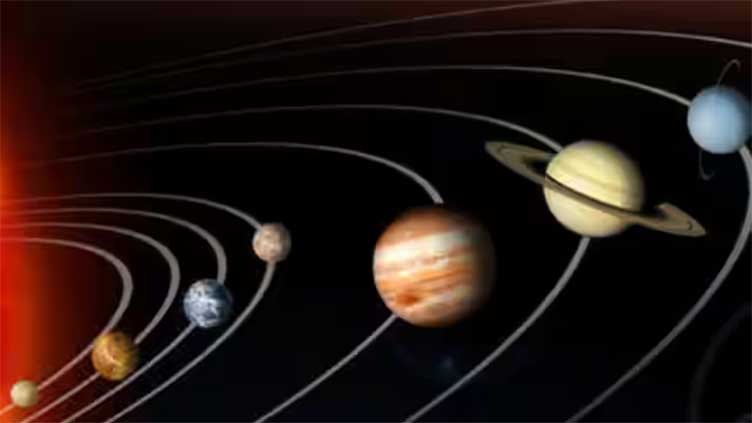New planet lurking in our Solar System: Scientists say Earth may have new neighbour

Technology
Scientists find it difficult to spot such planets because they are far away
(Web Desk) - It is very well known that there are eight planets in our Solar System and then a dwarf planet - Pluto.
But now the astronomers are suspecting there is a 7 per cent chance that another planet is hiding in the Oort cloud near Earth.
Oort cloud is a spherical region in space which is filled with ice chunks and rocks and is tens of thousands of times far from the Sun.
Co-author of the study and astronomer at the Planetary Science Institute Nathan Kaib said, “It’s completely plausible for our solar system to have captured such an Oort cloud planet."
He added that hidden worlds like this are “a class of planets that should definitely exist but have received relatively little attention” until now.
In case, there is a planet in the Oort cloud, it is likely to be an ice giant. Generally, large planets like Saturn and Jupiter come into existence as twins.
However, such planets have huge gravitational pulls and can even destabilise another planet.
This can lead to the nudging of a planet from the Solar System and moving it entirely to the outer reaches where the Oort Cloud is present.
University of Bordeaux’s Astrophysics Laboratory researcher and lead author Sean Raymond said, “The survivor planets have eccentric orbits, which are like the scars from their violent pasts."
So a planet inside the Oort Cloud is likely to have a significantly elongated orbit, which is very different from the near-perfect circular shape of the Earth.
The scientists find it difficult to spot such planets because they are far away.
“It would be extremely hard to detect,” said Raymond.
Meanwhile, an astronomer at MIT Malena Rice said, “If a Neptune-sized planet existed in our own Oort cloud, there’s a good chance that we wouldn’t have found it yet."
“Amazingly, it can sometimes be easier to spot planets hundreds of light-years away than those right in our own backyard," the astronomer said, reported indy100.


